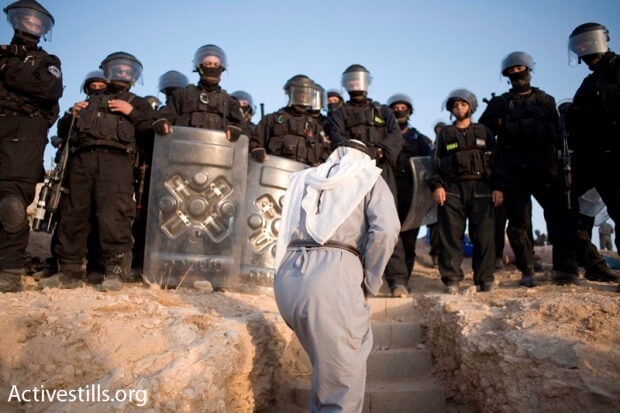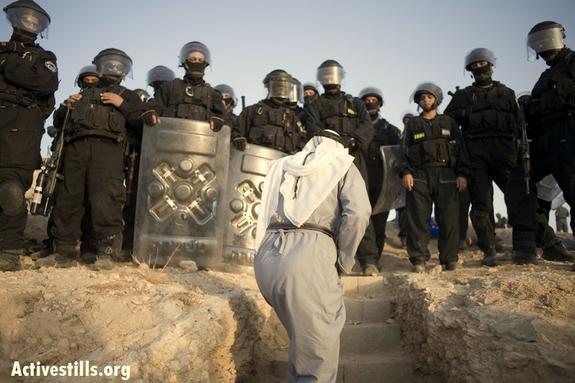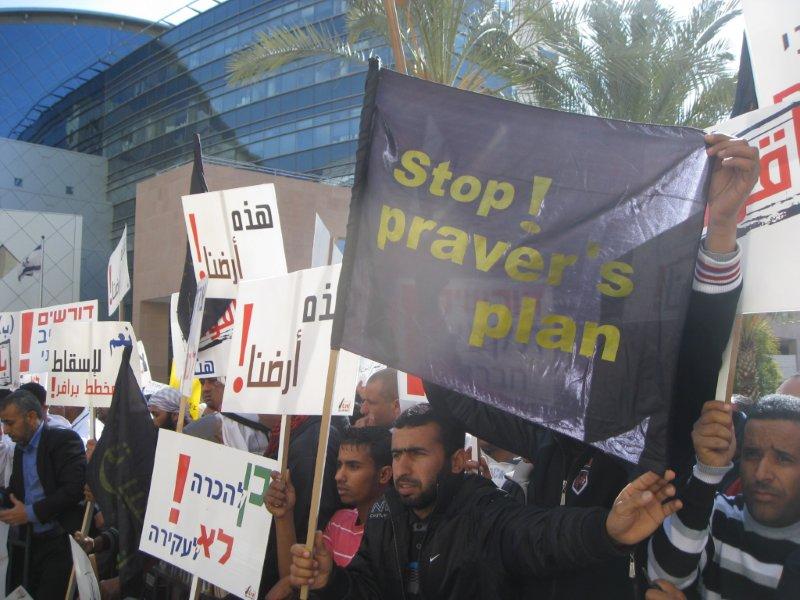Israel’s Arab Bedouin citizens are indigenous to the Negev (Naqab, in Arabic) desert, where they have lived for centuries as a semi-nomadic people, long before the establishment of the State of Israel in 1948. Combining herding with agriculture, they are settled in villages linked by kinship systems, and this has largely determined land ownership. Prior to 1948, some 65,000-100,000 Bedouin lived in the Negev. After 1948, most were expelled or fled to Egypt and Jordan, with only around 11,000 remaining in the area.
Today, approximately 258,500 Bedouin citizens of Israel live in the Negev in three types of localities: government-planned townships, recognised villages, and villages that Israel refuses to recognise (unrecognised villages). There are 35 unrecognized Bedouin villages in the Negev that Israel refers to either as the “dispersion” or as “illegal villages”, calling their inhabitants “trespassers” on state land and “criminals”. Most of the Bedouin population lost their land when Israel declared it as Mawat (“dead”, uncultivated agricultural lands) and claimed them as state lands. In addition, the Land Purchasing Law of 1953 determined that any land not found in its owners’ right in April 1952 would become state land, resulting in more Bedouin losing all rights to their lands outside their living area. There was no exception made for the Negev Bedouin, who were forcefully evicted from their ancestral lands by the very same Israeli government that went on to become the “rightful” guardian of those homesteads.
Since the beginning of the 1970s, Israel has been conducting an ongoing non-consensual and non-participatory process of urbanisation. As a result, today more than 72% of the Bedouin population in the Negev resides in recognised townships and villages, which are characterised by poverty, deprivation, high unemployment, crime and social tension, as well as inadequate provision of state services
International Work Group for Indigenous Affairs, The Indigenous World 2019




